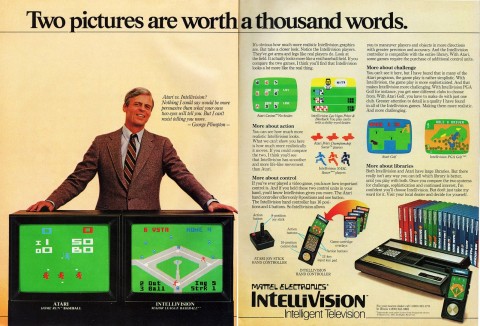Mandalore76 said:
This will get written off as anecdotal as well, but my grandfather owned an Intellivision. He was an avid golfer and bowler and had won many trophies, and Intellivision was known for having the most detailed looking/playing sports games of their time. Mattel was the first console manufacturer to seek out licenses from professional sports associations (NFL Football, NHL Hockey, NBA Basketball, etc.).
Two of the games my grandfather enjoyed playing the most were PGA Golf and PBA Bowling. He had other games of course like Snafu, Advanced Dungeons & Dragons, Microsurgeon, Atlantis, Dracula, etc. Anyway, this was a console that he bought for himself and played frequently, not just something that he would pull out of the closet when his grandkids came to visit. I think if you look at the crux of the Intellivision's library, and the games that made it stand out apart from the Atari 2600, you can clearly see that it was not a console just for kids. I'm not talking about just the sports games. Play (or look up videos of) Microsurgeon or Utopia (credited as being a precursor to Sid Meir's Civilization) and tell me which audience those games were specifically targeting. Children with short attention spans, or adults looking for a deeper mental challenge? The Intellivision sold over 3 million consoles between 1979-1983, and carved out 20% of Atari's market by the time of the North American Video Game Crash. Even the Intellivision ad campaigns are reminiscent of tactics Sega (and later Sony) used against Nintendo to show that the opposing console was "kids play" compared to theirs.
|
That is a nice story!
But just it becomes confusing: What I am saying here is that Nintendo brought the industry back from the dead, not invented it. That didn't impede companies having some success before the crash, but nobody managed to actuyll save it after it did crash. Not until Nintendo.
My (locked) thread about how difficulty should be a decision for the developers, not the gamers.
https://gamrconnect.vgchartz.com/thread.php?id=241866&page=1



















